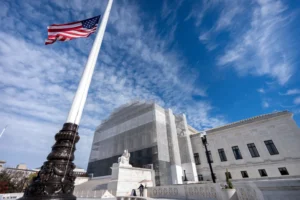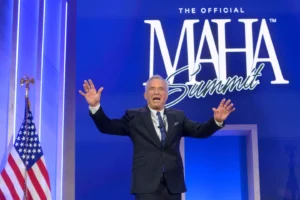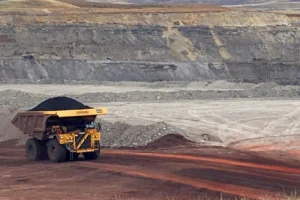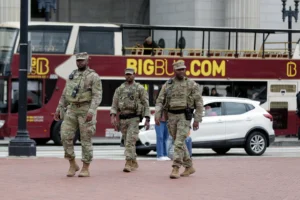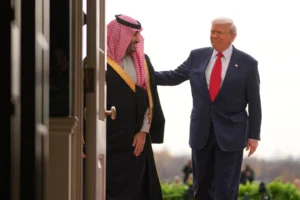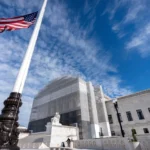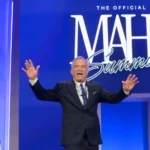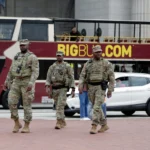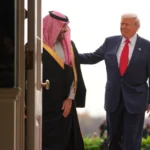Trump Subpoenaed in Jan. 6 Inquiry as Cheney Promises to Avoid TV “Circus”
Though the former president has yet to formally respond to the committee’s subpoena, it remains unlikely he will testify before year’s end
- Published In: Politics
- Last Updated: Oct 24, 2022
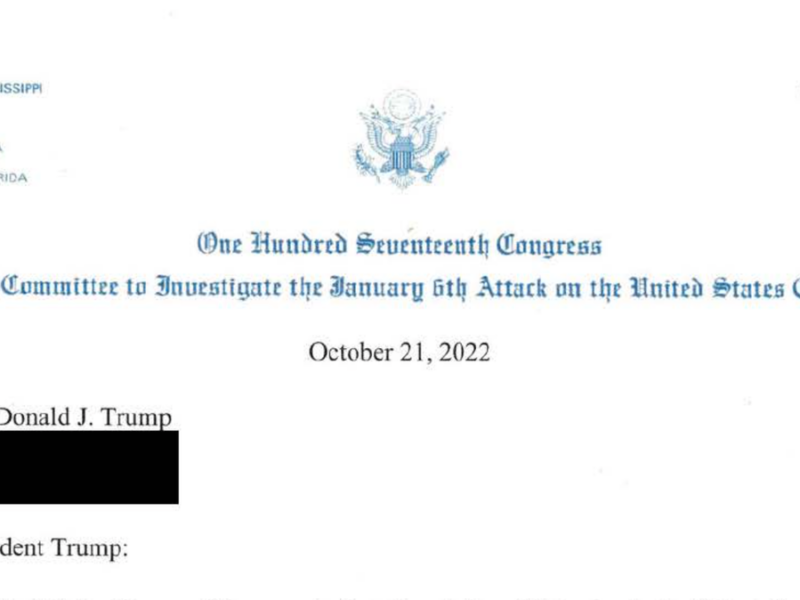
Lawmakers on the House Select Committee investigating the Jan. 6 insurrection formally issued a subpoena to former President Donald Trump on Friday, demanding he share documents and testify to the committee about his actions leading up to and during the attack at the Capitol. (Photo via the House Select Committee to Investigate the Jan. 6 Attack at the U.S. Capitol)
By Jacob Gardenswartz
Special to the Wyoming Truth
WASHINGTON — Lawmakers on the House select committee investigating the Jan. 6 insurrection at the U.S. Capitol formally issued a subpoena to former President Donald Trump on Friday, setting up a likely legal showdown over Trump’s cooperation as he teases another presidential bid in 2024. In a TV appearance Sunday, committee Vice Chair Rep. Liz Cheney (R-Wyo.) said she will “do whatever it takes” to ensure Trump “will not be the President of the United States again.”
Trump’s “not going to turn this into a circus,” Cheney added regarding the former president’s possible testimony.
In a letter to Trump attached to the request for testimony, committee Chairman Rep. Bennie Thompson (D-Miss.) and Cheney wrote that their committee assembled “overwhelming evidence” that Trump “personally orchestrated and oversaw a multi-part effort to overturn the 2020 presidential election and to obstruct the peaceful transition of power.”
The letter went on to detail requests for documents and testimony pertaining to 19 specific areas of investigative interest, including records of Trump’s communications on Jan. 6, possible correspondences with right-wing militia groups like the Proud Boys and Oath Keepers and any photographs or videos in Trump’s possession taken before or during the attack at the Capitol. Documents were requested to be shared by Nov. 4, with “one or more days” of testimony beginning “on or about” Nov. 14.

Though Trump has yet to formally respond to the subpoena, he has continued to criticize the investigative panel — which he’s dubbed the “unselect committee” — and appears unlikely to cooperate with their requests.
Shortly after committee members unanimously voted to subpoena Trump but before the official summons went out, Trump released a 14-page letter which began by falsely stating that the 2020 election was “RIGGED AND STOLEN!” He went on to complain that the committee did not adequately investigate his unproven allegations of voter fraud during its public hearings. However, top officials, including Trump’s own Attorney General, White House Counsel and campaign staff testified that Trump’s election loss was legitimate. Courts have ruled against him on the matter over 60 times.
In a statement, David A. Warrington, a lawyer for Trump, blasted the committee for “flouting norms and appropriate and customary process” by releasing the subpoena publicly, despite the fact that the committee previously shared dozens of subpoenas for witnesses. Warrington went on to state that Trump and his legal team would “review and analyze [the subpoena], and will respond as appropriate to this unprecedented action.”
Speaking at a rally in Robstown, Texas, on Saturday night, Trump mostly ignored the summons, instead criticizing the committee’s refusal to highlight the large crowd that assembled to hear him speak on Jan. 6. After touting his campaign’s success in 2016 and falsely claiming victory in 2020, Trump teased that he’ll “probably have to do it again” in 2024.
Whether Trump could be forced to cooperate with the investigation remains an open question. As committee members noted in their letter, there is a precedent for former presidents testifying before Congress: Theodore Roosevelt, William Taft, Herbert Hoover and Gerald Ford each spoke to Congress after they left office, albeit voluntarily. Presidents John Quincy Adams and John Tyler were each subpoenaed by the House in 1846 and both cooperated, with Tyler testifying and Adams submitting a written deposition.
As a part of an 1953 inquiry by the House Committee on Un-American Activities, President Harry Truman was subpoenaed for testimony. Though he voluntarily spoke to Congress on other topics, Truman refused to cooperate with that particular investigation, and lawmakers ultimately dropped the matter. To date, no court has conclusively ruled whether a former president must testify to Congress against his will.
Appearing on NBC’S “Meet the Press” on Sunday, Cheney pointed to the committee’s intent to force Trump to testify. “We have many, many alternatives that we will consider if the former president decides he is not going to comply with his legal obligation,” she said.
Should Trump choose to fight the subpoena in court, he is likely to succeed in at least delaying the matter until next year, when it’s widely believed Republicans will have a majority in the U.S. House. GOP leaders have all but confirmed their plans to disband the committee if take back the majority in the November midterm election.
And though House Speaker Rep. Nancy Pelosi (D-Calif.) said Sunday she doesn’t believe Trump is “man enough to show up” and testify in person, it is possible Trump could choose to comply with the subpoena and speak to the committee. Before the official summons was released, he reportedly told aides he favored sharing his side of the story so long as he could do so on live TV.
But that condition appears to be a nonstarter with lawmakers on the panel. “We are going to proceed in terms of the questioning of the former president under oath,” Cheney said Sunday. “It may take multiple days, and it will be done with a level of rigor and discipline and seriousness that it deserves.”

